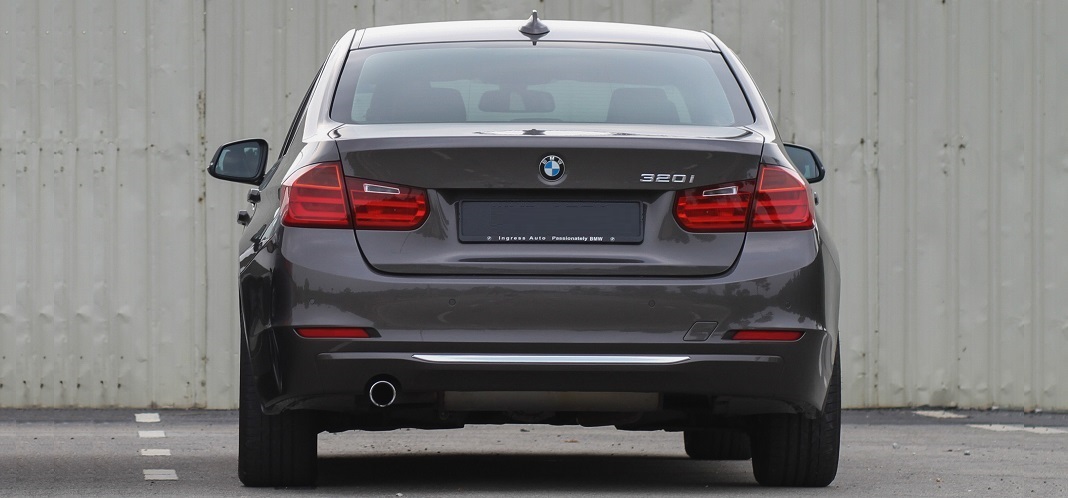 This is a first-hand account of using the Shell Helix Ultra 0W-30 in my own daily driver – a 2013 BMW 320i (F30 generation), so some background info is necessary. The car which the oil is trialled on had 61,000km on the odometer when it was filled with the fresh lube. Its 2.0-litre turbocharged four-cylinder engine had previously done a 10,000km stint on Helix Ultra 5W-40, and before that it ran on Helix Ultra 5W-30 from authorised BMW service centres.
This is a first-hand account of using the Shell Helix Ultra 0W-30 in my own daily driver – a 2013 BMW 320i (F30 generation), so some background info is necessary. The car which the oil is trialled on had 61,000km on the odometer when it was filled with the fresh lube. Its 2.0-litre turbocharged four-cylinder engine had previously done a 10,000km stint on Helix Ultra 5W-40, and before that it ran on Helix Ultra 5W-30 from authorised BMW service centres.
The vehicle is stock standard, used primarily (by the missus) for short commutes of around 10km (each start up) and spends 90% of its time navigating urban traffic. The average fuel economy has always hovered between 8.3km to 8.4km per litre (km/l) since day one, according to the trip computer. It sips a regular diet of RON95 petrol (Shell and BHPetrol mainly), with the occasional half-tankful of V-Power Racing when I feel generous.

Being a lab-generated NEDC combined cycle value, BMW’s official fuel consumption rating of 16km/l for the 320i is near impossible to replicate in the real world (as are all manufacturers’ claims). However, I have seen the 320i return more than 14km/l on outstation trips, so if you’re getting a lot less than what the spec sheet stipulated, don’t get your underwear in a bunch, it’s normal. With that out of the way, let’s address the oily bits.
Is the Helix Ultra 0W-30 ‘superior’?
Since we have no access to a test lab for scientific analysis, I can’t possibly verify Shell’s claims of superior piston cleanliness, corrosion protection, wear protection, etc. However, fuel economy and oil consumption can be objectively observed via the drive computer (the BMW doesn’t have a dipstick) and these numbers do allow us to draw reasonable conclusions on how the Helix Ultra 0W-30 fared.

There are many who are averse to ‘thinner’ engine oils with lower viscosity rating (e.g. 0W-20) for the fear of evaporation and reduced protection for the engine; this is the tropics after all and we drive in very hot and humid conditions. The oil viscosity topic is always subject to fierce debates on the Internet and among enthusiasts, so we won’t venture there. And don’t even get me started on the technical definition of ‘synthetic’.
Suffice it to say, the best recourse is always to follow what manufacturers recommend, or at least not deviate too far from it if you do. If you’re unsure, stick with established lube brands to be safe. Based on the information we could gather, both the Helix Ultra 5W-30 and 0W-30 fall within the viscosity grades recommended by BMW for the 320i powered by the N20 four-cylinder engine, so the risk, if any, was a calculated one.

Having now done more than 5,000km on the 0W-30, I’m pleased to report that the engine had not consumed any oil; this is based on BMW’s on-board oil checking software which shows a virtual dipstick read-out on the iDrive display, the oil level remains the same as when it was checked right after the 0W-30 was poured in – all five litres’ worth. Having said that, the 320i had never consumed any oil since the day it was driven away from the showroom, a testament to how well the N20 four-cylinder is holding up.

The surprising bit is this; fuel efficiency has since improved from an average of 8.3km/l to 8.7km/l (as told by the trip computer), which works out to an increase in mileage of 4.8% (!), far exceeding Shell’s claim of 2.6%. In fact, during the first two weeks of use (after performing a trip reset of course), it even nudged 8.9km/l before settling into a rock solid 8.7km/l over the same daily routes and routines. Since everything on the car was unaltered (including the tyres), I can only surmise that the low friction properties of the lighter weight oil have had a positive impact on the fuel economy.
So, is lighter really better?
Subjectively, and this could well be a placebo effect, the 320i sounded a shade quieter on cold starts (still clattery, but less obviously so) while the engine felt a tad more willing on initial throttle application than before. Otherwise, my butt sensors failed to pick up any other supporting empirical evidence. The sensation could be affected by other factors (e.g. a different tank of petrol or denser and cooler air of the day), but I’m thoroughly satisfied with the results.

Now, before you log on to Shell’s official online store on Lazada to cash in on some promo codes for a four-litre pack of the Helix Ultra 0W-30 for your next oil change (retail price is RM358), do consider the age, mileage and condition of your vehicle before taking the plunge. If it hails from a period when Justin Timberlake was still part of a boy band called NSync and Donald Trump fired staffers left, right and centre on Apprentice (wait, the stable genius is still at it today), best stick with higher viscosity lubes for a peace of mind. But if 0W-30 is recommended by the owner’s manual and seeing km/l rise lights your fire, the Shell Helix Ultra 0W-30 is well worth a try.